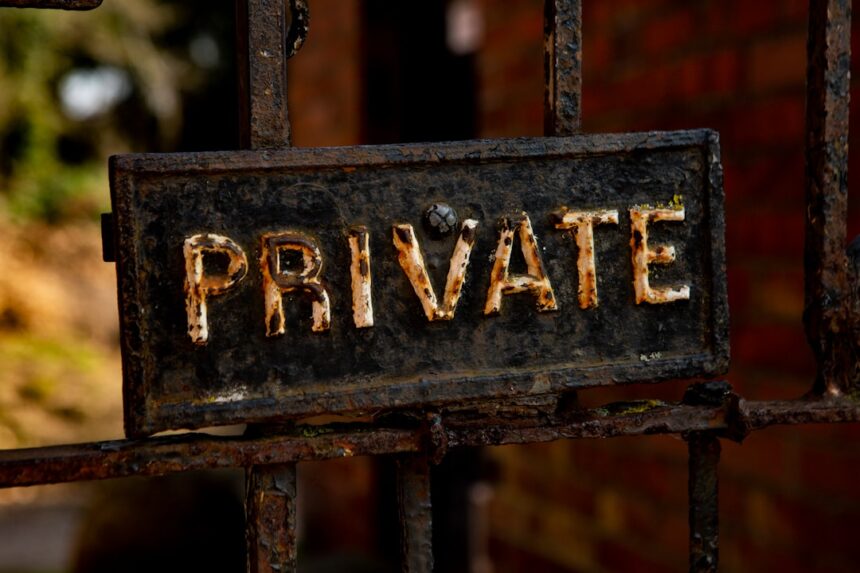The origins of private security can be traced back to ancient civilizations, where the need for protection and safety was paramount. In ancient Rome, for instance, wealthy citizens often employed personal guards to protect their homes and properties. These guards were typically slaves or hired hands who were tasked with ensuring the safety of their employers.
Similarly, in medieval Europe, the concept of private security began to take shape as feudal lords relied on knights and mercenaries to safeguard their territories. This early form of private security laid the groundwork for more organized and professional security services that would emerge in later centuries. As societies evolved, so did the methods of protection.
By the 18th century, the rise of urban centers and the accompanying increase in crime necessitated a more structured approach to security. The establishment of watchmen and constables in cities marked a significant shift from informal protection to a more organized system. These early law enforcement figures were often volunteers or part-time workers who patrolled neighborhoods to deter crime.
However, their limited resources and authority highlighted the need for a more robust solution, paving the way for the development of private security firms.
Key Takeaways
- Private security has a long history dating back to ancient civilizations, where wealthy individuals hired personal protection.
- Industrialization led to increased security needs, as factories and businesses required protection from theft and labor disputes.
- Pinkerton and other early private security companies emerged during the 19th century to meet the growing demand for security services.
- Private security firms played a significant role during the World Wars, providing support for military operations and protecting critical infrastructure.
- The post-war era saw the evolution of private security, with firms expanding their services to include surveillance, risk assessment, and executive protection.
The Impact of Industrialization on Security Needs
The Industrial Revolution brought about profound changes in society, including rapid urbanization and the growth of factories. As people flocked to cities in search of work, the social fabric began to fray, leading to increased crime rates and unrest. The burgeoning industrial landscape created new vulnerabilities that required innovative security solutions.
Factories became prime targets for theft and vandalism, prompting business owners to seek protection beyond what public law enforcement could provide. This shift marked a turning point in the evolution of private security, as businesses began to recognize the value of investing in their own safety measures. In response to these growing security concerns, private security firms began to emerge as viable alternatives to traditional law enforcement.
These companies offered specialized services tailored to the unique needs of industrial clients, including armed guards, surveillance systems, and risk assessments. The demand for private security surged as businesses sought to protect their assets and ensure the safety of their employees. This period also saw the introduction of innovative technologies, such as alarm systems and locks, which further enhanced the capabilities of private security firms.
The Rise of Pinkerton and Other Early Private Security Companies

One of the most notable figures in the early history of private security was Allan Pinkerton, who founded the Pinkerton National Detective Agency in 1850. Initially established as a detective agency, Pinkerton’s firm quickly expanded its services to include private security for businesses and individuals. The agency gained fame for its role in apprehending criminals and providing protection during labor disputes, which often turned violent.
Pinkerton’s innovative approach to security, including the use of undercover agents and intelligence gathering, set a precedent for future private security firms. As Pinkerton’s influence grew, other companies began to emerge in the private security landscape. Firms like Burns International Security Services and Wells Fargo’s express company also played significant roles in providing protection for businesses and individuals during this era.
These companies not only offered physical security but also developed investigative services that catered to a wide range of clients. The competitive nature of the industry spurred innovation and led to the establishment of standards that would shape the future of private security.
Private Security Firms During the World Wars
| World War | Number of Private Security Firms | Role |
|---|---|---|
| World War I | Approximately 3,000 | Provided security for factories, ports, and other critical infrastructure |
| World War II | Significantly increased | Played a crucial role in protecting military installations, supply lines, and war production facilities |
The two World Wars had a profound impact on the private security industry, as global conflicts created new challenges and opportunities for security firms. During World War I, many private security companies were called upon to provide protection for critical infrastructure, including factories that produced munitions and supplies for the war effort. The demand for skilled security personnel surged as businesses sought to safeguard their operations from sabotage and espionage.
This period marked a significant expansion of private security services, as firms adapted to meet the needs of a wartime economy. World War II further accelerated this trend, with private security firms playing crucial roles in protecting military installations and sensitive government facilities. The rise of espionage and sabotage during this time necessitated advanced security measures, leading to innovations in surveillance technology and intelligence gathering.
Many private security firms collaborated with government agencies to develop strategies for countering threats, solidifying their position as essential partners in national defense efforts. The experience gained during these tumultuous years would prove invaluable as private security firms transitioned into peacetime operations.
The Evolution of Private Security in the Post-War Era
In the aftermath of World War II, the private security industry underwent significant transformation as society adjusted to a new era of peace and prosperity. The post-war economic boom led to an increase in consumerism and urban development, creating new opportunities for private security firms. Businesses expanded rapidly, necessitating enhanced security measures to protect assets and ensure employee safety.
This period saw a diversification of services offered by private security companies, including event security, personal protection, and risk management consulting. The rise of organized crime during this time also contributed to the evolution of private security. As criminal enterprises became more sophisticated, businesses sought out professional security services to combat these threats effectively.
Private security firms began employing former law enforcement officers and military personnel, bringing a wealth of experience and expertise to their operations. This shift not only elevated the professionalism of the industry but also established a new standard for training and certification within private security.
The Role of Private Security Firms in the Civil Rights Movement

The Civil Rights Movement of the 1960s presented unique challenges and opportunities for private security firms. As protests and demonstrations erupted across the United States, many organizations sought protection from potential violence and unrest. Private security companies were often hired by civil rights leaders and organizations to ensure the safety of participants during marches and rallies.
This involvement highlighted the dual role that private security could play—protecting both individuals exercising their rights and businesses concerned about potential disruptions. However, this period also raised ethical questions regarding the role of private security in social movements. Some firms were accused of collaborating with law enforcement agencies to suppress protests or intimidate activists.
This tension underscored the complex relationship between private security firms and social justice movements, prompting discussions about accountability and ethical practices within the industry. As civil rights leaders navigated these challenges, they often relied on trusted private security personnel who understood their mission and were committed to protecting their rights.
The Influence of Technology on Private Security
The advent of technology has had a profound impact on the private security industry, revolutionizing how firms operate and deliver services. From surveillance cameras to access control systems, technological advancements have enhanced the capabilities of private security personnel while providing clients with greater peace of mind. The integration of digital tools has allowed firms to monitor properties remotely, respond quickly to incidents, and gather valuable data for risk assessments.
Moreover, technology has facilitated the rise of cybersecurity as an essential component of private security services. With increasing reliance on digital infrastructure, businesses face new threats from cybercriminals seeking to exploit vulnerabilities in their systems. Private security firms have adapted by offering comprehensive cybersecurity solutions that protect sensitive information and mitigate risks associated with data breaches.
This evolution reflects a broader trend within the industry toward embracing innovation while addressing emerging threats in an increasingly interconnected world.
The Globalization of Private Security Firms
As globalization continues to reshape economies and societies worldwide, private security firms have expanded their reach beyond national borders. Many companies now operate on a global scale, providing services to multinational corporations and organizations with operations in multiple countries.
The globalization of private security has also prompted discussions about accountability and oversight. As firms operate in regions with different regulatory environments, concerns arise regarding human rights abuses and ethical practices. International organizations have called for greater transparency within the industry, urging firms to adhere to established standards that prioritize respect for human rights while delivering effective security solutions.
This ongoing dialogue reflects the complexities inherent in balancing business interests with ethical considerations in an increasingly interconnected world.
Controversies and Ethical Issues Surrounding Private Security
The growth of private security has not been without its controversies and ethical dilemmas. Critics argue that the proliferation of private security firms can lead to a lack of accountability, particularly when these companies operate with minimal oversight from government authorities. Instances of excessive force or misconduct by private security personnel have raised questions about training standards and ethical practices within the industry.
Such incidents have sparked public outcry and calls for reform aimed at ensuring that private security firms uphold high ethical standards while serving their clients. Additionally, concerns about privacy have emerged as technology continues to play a central role in private security operations. Surveillance systems equipped with advanced monitoring capabilities raise questions about individual rights and civil liberties.
As firms increasingly rely on data collection and analysis to enhance their services, striking a balance between effective security measures and respecting privacy rights remains a critical challenge for the industry.
The Current State of the Private Security Industry
Today, the private security industry is a multi-billion-dollar global enterprise encompassing a wide range of services from physical protection to cybersecurity solutions. With increasing demand from businesses seeking comprehensive risk management strategies, private security firms have diversified their offerings to include consulting services that assess vulnerabilities and develop tailored solutions for clients. This evolution reflects a growing recognition that effective security requires a holistic approach that addresses both physical threats and digital vulnerabilities.
Moreover, workforce development has become a focal point within the industry as firms strive to attract skilled professionals capable of navigating complex security challenges. Training programs have evolved to encompass not only traditional physical security skills but also expertise in cybersecurity, crisis management, and conflict resolution. As the landscape continues to change, fostering a well-trained workforce will be essential for ensuring that private security firms can meet evolving client needs while maintaining high standards of service.
The Future of Private Security Firms
Looking ahead, the future of private security firms is likely to be shaped by ongoing technological advancements and shifting societal expectations regarding safety and privacy. As artificial intelligence (AI) becomes increasingly integrated into security operations, firms will need to adapt their strategies accordingly while addressing ethical considerations related to automation and surveillance technologies. The ability to leverage AI-driven analytics will enhance threat detection capabilities but may also raise concerns about bias and accountability.
Furthermore, as global challenges such as climate change and geopolitical tensions continue to evolve, private security firms may find themselves at the forefront of addressing new risks associated with these issues. From natural disasters requiring emergency response planning to political instability necessitating protective measures for expatriates or businesses operating abroad, adaptability will be key for firms seeking to thrive in an ever-changing landscape. In conclusion, while the private security industry has come a long way since its early days, it faces ongoing challenges that require careful navigation between effective service delivery and ethical considerations.
As it continues to evolve in response to societal needs and technological advancements, maintaining transparency, accountability, and respect for individual rights will be paramount for ensuring its legitimacy and effectiveness in safeguarding people and property alike.
The rise of private security firms has been a significant development in the landscape of global security, often filling gaps left by traditional military and police forces. These firms have their roots in the need for specialized security services that can operate flexibly across various regions and sectors. For a deeper understanding of the historical context and evolution of private security firms, you can explore a related article on this topic by visiting In The War Room. This resource provides insights into how these firms have adapted to the changing demands of security in both domestic and international arenas.
WATCH THIS! From Tehran to Blackwater: The Real Story
FAQs
What are private security firms?
Private security firms are companies that provide security services to individuals, businesses, and organizations. These services can include security guards, surveillance systems, alarm monitoring, and security consulting.
When did private security firms originate?
Private security firms have been around for centuries, with the earliest known private security force dating back to ancient Rome. However, the modern concept of private security firms began to emerge in the 19th century, particularly in the United States and the United Kingdom.
What led to the rise of private security firms?
The rise of private security firms can be attributed to several factors, including the industrial revolution, urbanization, and the increasing need for security in a rapidly changing society. Additionally, the limitations of public law enforcement agencies in providing comprehensive security services also contributed to the growth of private security firms.
How have private security firms evolved over time?
Private security firms have evolved to offer a wide range of specialized services, including cybersecurity, executive protection, event security, and risk assessment. They have also adopted advanced technologies and techniques to enhance their capabilities in providing security solutions.
What is the role of private security firms in today’s society?
Private security firms play a crucial role in complementing the efforts of public law enforcement agencies in maintaining safety and security. They provide tailored security solutions to meet the specific needs of their clients, whether it’s protecting individuals, properties, or sensitive information.




